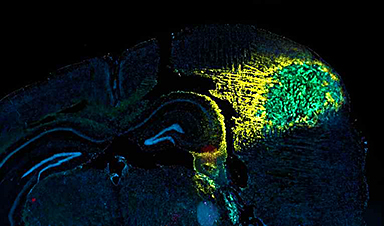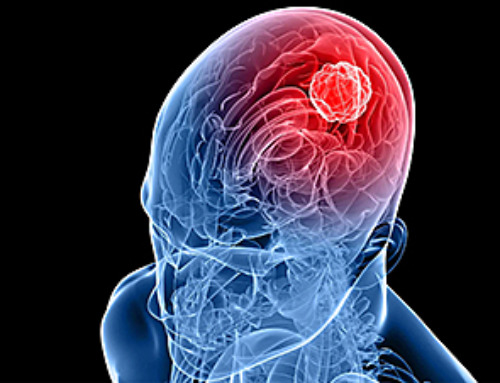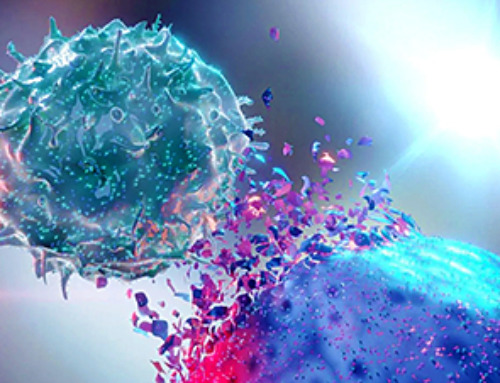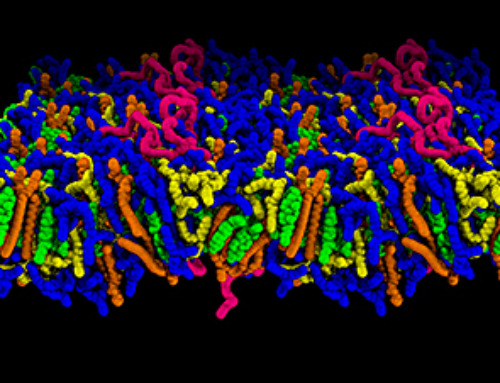Cancer biologists at EPFL, UNIGE, and the German Cancer Research Center (Heidelberg) have developed a novel immunotherapy that does not require knowledge of a tumor’s antigenic makeup. The new results may pave the way to first-in-kind clinical applications.
Unfortunately, tumors often erect barriers against the body’s immune system, allowing them to grow uncontrolled. This setback, called immunosuppression, may involve the inhibition of DCs and their ability to present tumor antigens to CD8+ T cells.
Addressing the limitations of traditional vaccines
Over the last few decades, researchers have worked to overcome tumor-induced immunosuppression by various strategies, collectively called immunotherapies, some of which are approved treatments effective in patients with certain cancers.
One approach is to generate DCs from the blood monocytes (a type of immune white blood cells) of a patient with cancer, expose them in the laboratory to defined tumor-derived material from a tumor biopsy (antigen loading step), and then reintroduce them into the patient’s body. This procedure, often referred to as a DC vaccine, is expected to significantly enhance the presentation of tumor antigens to CD8+ T cells.
However, DC vaccines have produced mixed results in clinical trials. One potential limitation is the use of monocyte-derived DCs. These cells lack certain essential properties of naturally occurring DCs, such as type I DCs (cDC1), which play a crucial role in activating CD8+ T cells.
Another potential shortcoming is its dependence on the antigen loading step, which uses predefined antigens that may not represent the full spectrum of relevant antigens present in cancer cells. Addressing the limitations of traditional DC vaccines could enhance their therapeutic efficacy.
A team of scientists led by Michele De Palma, associate professor in the School of Life Sciences and director of the Agora Cancer Research Center, has now developed engineered DCs with the capacity to differentiate into cDC1 and to stimulate anti-tumor immunity when transferred to mice with tumors, without the need for antigen loading step. The study is published in Nature Cancer.
“Our strategy does not use the monocyte-derived DCs employed in previous studies, but relies on a population of DC progenitors, called DCPs, which we can produce in vitro in the laboratory from readily available sources, such as blood and bone marrow,” De Palma explains.
Surpassing the outcomes
When engineered to express two immune-stimulatory molecules (IL-12 and FLT3L), the DCP could initiate effective anti-tumor immune responses in various cancer models, surpassing the outcomes achieved with other traditional DC formulations. “Remarkably, the engineered DCPs worked in the absence of antigen loading, which implies that they could be potentially effective against a broad range of human cancers, so irrespective of the antigens that they express.”
The ability of engineered DCPs to broadly engage multiple components of the immune system, not limited to CD8+ T cells, may explain their effectiveness. “A very promising result was the ability of the DCPs to unlock the efficacy of CAR-T cells in eradicating brain tumors in mice,” says Professor Denis Migliorini, head of neuro-oncology at UNIGE and one of the study’s authors.
CAR-T cells are another class of engineered immune cells already approved for the treatment of certain tumors, but their efficacy in brain cancer has so far been limited. “We are committed to combining DCPs with CAR-T cells in patients with incurable brain cancer,” adds Migliorini.
“Our preclinical results require further development and testing before moving to clinical application,” cautions De Palma. DCPs can be readily obtained from human blood, which should facilitate the translation of preclinical results into a potentially transformative cancer immunotherapy.
More information: Ali Ghasemi et al, Cytokine-armed dendritic cell progenitors for antigen-agnostic cancer immunotherapy, Nature Cancer (2023). DOI: 10.1038/s43018-023-00668-y
News
New book from Nanoappsmedical Inc. – Global Health Care Equivalency
A new book by Frank Boehm, NanoappsMedical Inc. Founder. This groundbreaking volume explores the vision of a Global Health Care Equivalency (GHCE) system powered by artificial intelligence and quantum computing technologies, operating on secure [...]
New Molecule Blocks Deadliest Brain Cancer at Its Genetic Root
Researchers have identified a molecule that disrupts a critical gene in glioblastoma. Scientists at the UVA Comprehensive Cancer Center say they have found a small molecule that can shut down a gene tied to glioblastoma, a [...]
Scientists Finally Solve a 30-Year-Old Cancer Mystery Hidden in Rye Pollen
Nearly 30 years after rye pollen molecules were shown to slow tumor growth in animals, scientists have finally determined their exact three-dimensional structures. Nearly 30 years ago, researchers noticed something surprising in rye pollen: [...]
NanoMedical Brain/Cloud Interface – Explorations and Implications. A new book from Frank Boehm
New book from Frank Boehm, NanoappsMedical Inc Founder: This book explores the future hypothetical possibility that the cerebral cortex of the human brain might be seamlessly, safely, and securely connected with the Cloud via [...]
How lipid nanoparticles carrying vaccines release their cargo
A study from FAU has shown that lipid nanoparticles restructure their membrane significantly after being absorbed into a cell and ending up in an acidic environment. Vaccines and other medicines are often packed in [...]
New book from NanoappsMedical Inc – Molecular Manufacturing: The Future of Nanomedicine
This book explores the revolutionary potential of atomically precise manufacturing technologies to transform global healthcare, as well as practically every other sector across society. This forward-thinking volume examines how envisaged Factory@Home systems might enable the cost-effective [...]
A Virus Designed in the Lab Could Help Defeat Antibiotic Resistance
Scientists can now design bacteria-killing viruses from DNA, opening a faster path to fighting superbugs. Bacteriophages have been used as treatments for bacterial infections for more than a century. Interest in these viruses is rising [...]
Sleep Deprivation Triggers a Strange Brain Cleanup
When you don’t sleep enough, your brain may clean itself at the exact moment you need it to think. Most people recognize the sensation. After a night of inadequate sleep, staying focused becomes harder [...]
Lab-grown corticospinal neurons offer new models for ALS and spinal injuries
Researchers have developed a way to grow a highly specialized subset of brain nerve cells that are involved in motor neuron disease and damaged in spinal injuries. Their study, published today in eLife as the final [...]
Urgent warning over deadly ‘brain swelling’ virus amid fears it could spread globally
Airports across Asia have been put on high alert after India confirmed two cases of the deadly Nipah virus in the state of West Bengal over the past month. Thailand, Nepal and Vietnam are among the [...]
This Vaccine Stops Bird Flu Before It Reaches the Lungs
A new nasal spray vaccine could stop bird flu at the door — blocking infection, reducing spread, and helping head off the next pandemic. Since first appearing in the United States in 2014, H5N1 [...]
These two viruses may become the next public health threats, scientists say
Two emerging pathogens with animal origins—influenza D virus and canine coronavirus—have so far been quietly flying under the radar, but researchers warn conditions are ripe for the viruses to spread more widely among humans. [...]
COVID-19 viral fragments shown to target and kill specific immune cells
COVID-19 viral fragments shown to target and kill specific immune cells in UCLA-led study Clues about extreme cases and omicron’s effects come from a cross-disciplinary international research team New research shows that after the [...]
Smaller Than a Grain of Salt: Engineers Create the World’s Tiniest Wireless Brain Implant
A salt-grain-sized neural implant can record and transmit brain activity wirelessly for extended periods. Researchers at Cornell University, working with collaborators, have created an extremely small neural implant that can sit on a grain of [...]
Scientists Develop a New Way To See Inside the Human Body Using 3D Color Imaging
A newly developed imaging method blends ultrasound and photoacoustics to capture both tissue structure and blood-vessel function in 3D. By blending two powerful imaging methods, researchers from Caltech and USC have developed a new way to [...]
Brain waves could help paralyzed patients move again
People with spinal cord injuries often lose the ability to move their arms or legs. In many cases, the nerves in the limbs remain healthy, and the brain continues to function normally. The loss of [...]





















